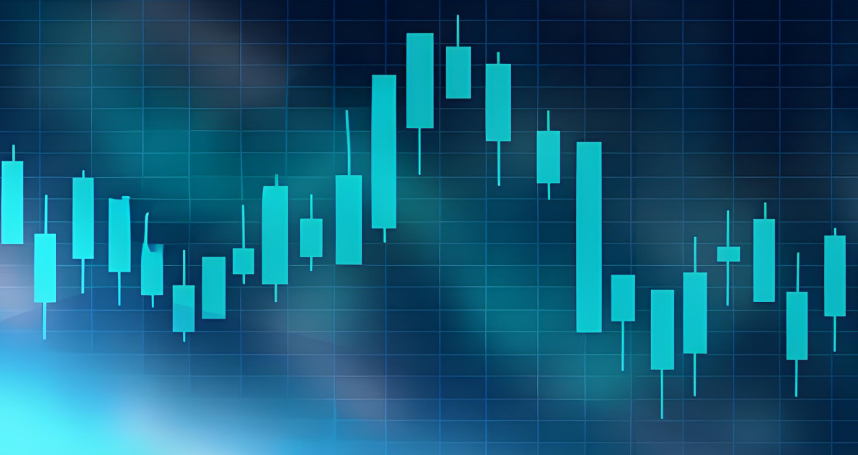-
Tesla's Plunge in 2025
-
Surge in CNH Interest Rates
-
From Quantity to Quality: The Future Holds Promise
-
When Will the Fed Cut Rates?
-
CPI Data May Caution the Fed!
-
Understanding CPI and PPI
-
Gold Prices Surge and Retreat
-
Nvidia's $600 Billion Loss Triggers US Market Sell-Off
-
Can the Renminbi Rival the Dollar?
-
Decoding the Central Bank's Rate Cut Decision
Fed Ends Rate Cuts
Advertisements
The financial landscape in the United States is fraught with tension as concerns mount over a potential resurgence of inflation. This anxiety within the sphere of Wall Street mirrors the escalating trade threats emanating from American policymakers. Recently, a cadre of inflation experts, among them former Treasury Secretary Lawrence Summers, has openly voiced their apprehensions regarding the trajectory of price levels in the near future.
Four years ago, during a period when the Federal Reserve confidently maintained that rising inflation rates were merely a transient phenomenon, Summers was vocal in his critique of the excessive fiscal and monetary stimulus that he believed could trigger the most significant inflationary event in decades. Now, in a striking turn of events, he finds himself reiterating his warnings about the imminent risks of renewed price pressures on the American economy.
In his comments during a recent interview, Summers underscored the sensitivity of the current economic environment, stating, “Since the policy missteps of 2021 ignited serious inflation, we are now at a potentially explosive moment for inflation.” He highlighted troubling indicators, notably from the labor market, such as last week's January employment report which revealed substantial wage increases. Such developments, he argues, are fuelling expectations for a possible rise in the Consumer Price Index (CPI), adding pressure even before the government takes decisive action.
Summers called for extreme caution, urging the Fed to remain vigilant regarding inflationary threats. He posited that further interest rate reductions in this economic cycle appear improbable. “It’s not a matter of chance, but rather a very tangible possibility that the Fed’s next move could be to raise interest rates, not lower them,” Summers cautioned. He articulated that with each new sign of rising costs, any statements or measures that could compromise the credibility of inflation expectations present a heightened risk to economic stability.
Reflecting back on the events of early 2021, Summers had prophesied that the previous administration’s extensive $1.9 trillion stimulus package could stoke inflation, eliciting discomfort among some of his Democratic colleagues. He charged the Fed with a lack of adequate focus on price risks during that period.
Similarly, the Chief Economist of Apollo Global Management, Torsten Slok, echoed these sentiments during a recent discussion, forewarning that if the market faces significant turmoil, it may well arise during the summer months, potentially in conjunction with rising interest rates from the Fed. Slok pointedly remarked that the newly imposed tariffs on various goods could exacerbate inflationary trends, thereby inflaming the economic situation.

With tariffs now in play, Slok posited that if inflation accelerates in response to these tariffs, the Federal Reserve may be compelled to raise rates at their June meeting. He explained, “If our inflation rate spikes due to robust economic performance and certain policies lead to incremental inflation increases, multiple rate hikes could occur later this year.”
Such adjustments could catch market participants off guard, given that there is currently a prevailing belief that the Fed would maintain steady rates, even if they do not pursue further cuts. At present, the market has not adequately priced in the possibility of forthcoming rate hikes.
This week, the U.S. government announced two executive orders projecting a 25% tariff on steel and aluminum imports. Furthermore, threats have been made indicating possible reciprocal tariffs on all nations, stirring additional trepidation in economic circles.
Although there is divergent opinion on the direct effects of tariffs on inflation, economists generally agree there will be some repercussions. A recent report from Deutsche Bank indicated that the tariffs on just steel and aluminum could elevate the core personal consumption expenditures price index by approximately 0.4 percentage points.
Federal Reserve Chair Jerome Powell reiterated positions he shared in previous testimonies, asserting that there is no rush to adjust rates. He emphasized that the central bank remains focused on long-term economic stability, rather than responding impulsively to temporary market fluctuations.
The pricing dynamics observed in the bond market reflect this environment of uncertainty. Yields on Treasury bonds across various terms saw a broad-based increase, as Powell’s signal of patience resonated with investors facing the reality of elevated tariffs. By the end of trading, the yield on the benchmark 10-year Treasury note had climbed by 4.2 basis points to 4.537%, marking the fourth consecutive day of upticks. Similarly, the 30-year Treasury note yield rose by 4.2 basis points, reaching 4.753%.
In tandem with these movements, the breakeven inflation rates for both 2-year and 10-year Treasury securities continued their ascent, solidifying the notion that market participants are increasingly regarding inflation as a more significant concern than previously anticipated.
The recent fluctuations in interest rate dynamics have sparked heightened attentiveness as well, with market pricing for the likelihood of rate cuts significantly diminishing, reaching a level not witnessed in nearly a month. Under the dual pressures of economic data and policy signals, trader expectations have demonstrably shifted. Recent analyses suggest that traders foresee a potential cut of 36 basis points by the Fed before year-end, indicating a scenario where only one reduction is anticipated. Meanwhile, the chance of a second rate cut remains uncertain, displaying a precarious equilibrium of roughly 50/50 among market projections.
This raises critical questions concerning the Fed's monetary policy direction going forward, wherein the uncertainty surrounding inflation trajectories and responses to fiscal stimuli continues to loom large, challenging economists and market analysts alike.
Your comment